Artisan Beverage Cooperative
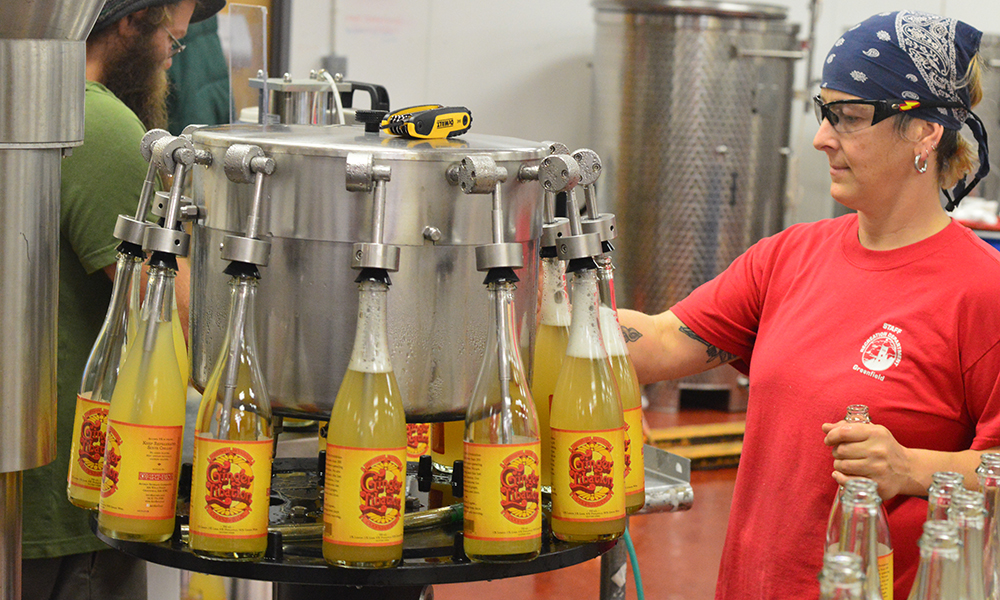
Artisan Beverage Cooperative was born out of two established businesses sharing space in Greenfield, Massachusetts. Katalyst Kombucha has been rocking the naturally-fermented, probiotic world for a decade. Not far behind are the folks at Green River Ambrosia, who have been making award-winning mead and their signature Ginger Libation since 2007. In 2013 they merged the two companies and became a worker-owned cooperative. We chatted them up recently and they had some fascinating things to say.
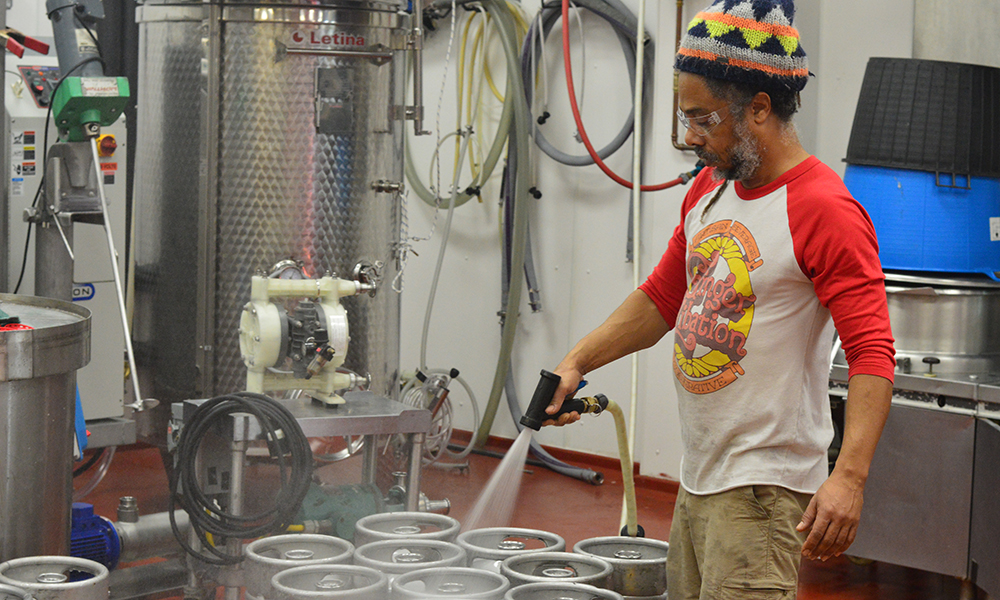
Do you think Ginger Libation fans are more typically beer, wine, or spirits drinkers?
We may appeal a bit more to craft beer drinkers, but we’ve also found a good reception from people that prefer wine or spirits. One of the nicest things that we’ve found with Ginger Libation is how it really crosses through these categories. An idea that we’ve gotten from a number of bartenders is how great it works as a cocktail mixer, so that’s one way spirits drinkers have become big fans as well.
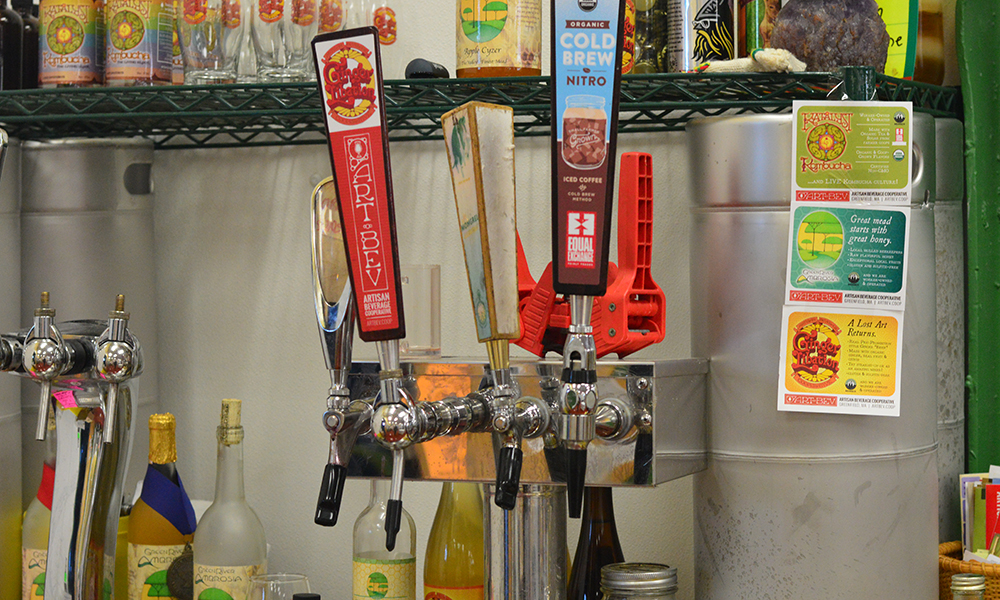
Has being your own thing in the world of clear beer/wine/spirits distinctions presented any problems?
The biggest obstacle that we’ve seen is that people just don’t know how great ginger beer and mead can be. We’ve tried to get around this by getting out with samples to as many tastings, events, and festivals that we can.
We’ve also had some issues in regards to the different tax rates that some states have in regards to wineries and breweries. Because we don’t use any kind of malt we’re classified as a winery, and therefore all alcoholic products we make are considered a wine. Some states have higher tax rates for wine sales. This can make places known for a good craft beer selection less likely to try out a unique product that’s labeled as wine, even if the product would fit well into their store and existing customer base.
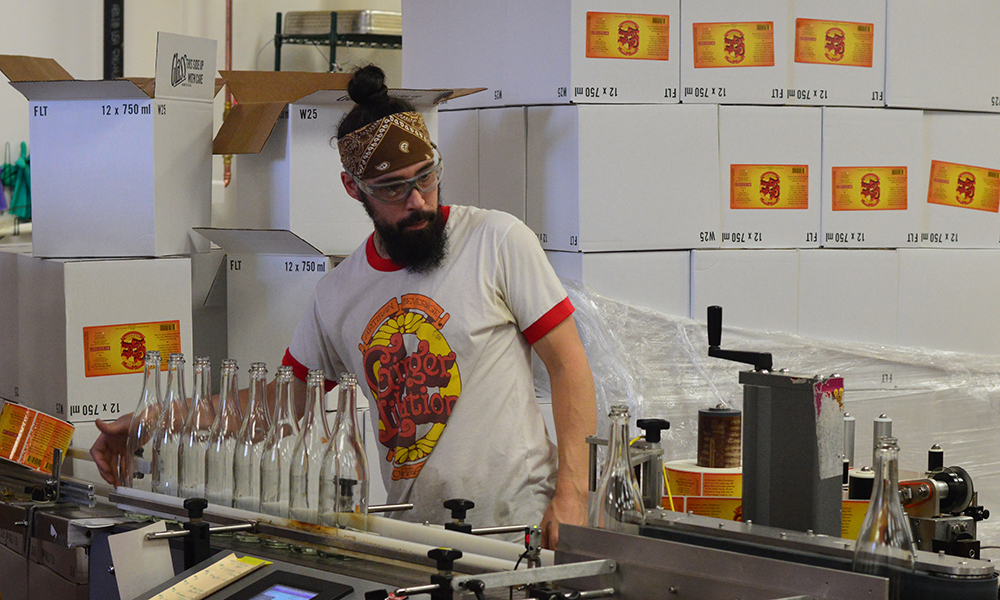
Do you think the market is opening up a bit now that other companies are making products similar to Ginger Libation?
At this point there are a few other breweries making old style Ginger Beers. When we first started making Ginger Libation we were the only old-style alcoholic ginger beer on the market. We knew that it was a good enough product that competition was inevitable at some point. To see it happening so soon is really encouraging. It confirms what we’ve been thinking since we first started- that alcoholic ginger beer has a huge market that’s just starting to be tapped.
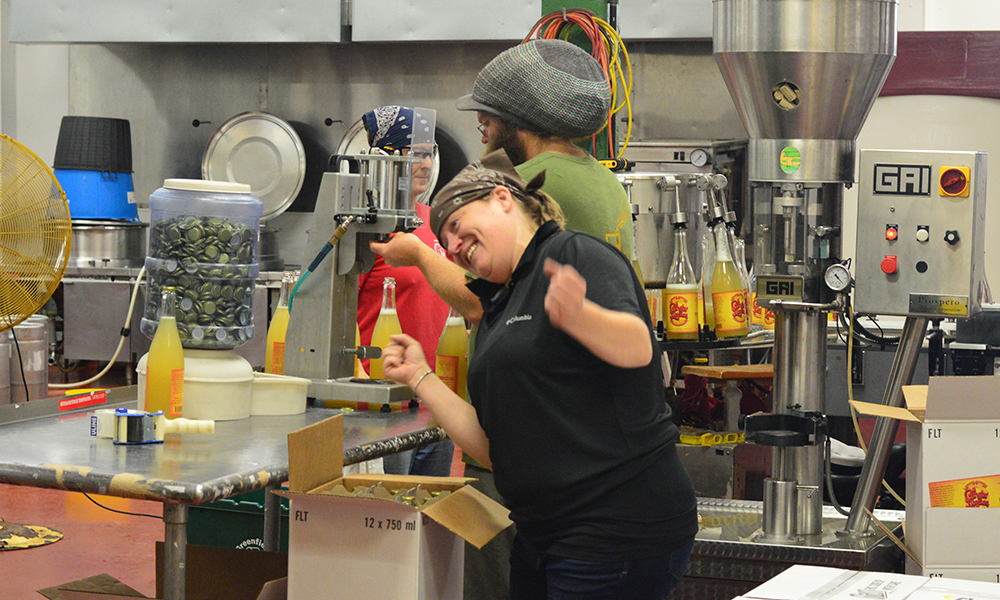
The original Ginger Libation was a gluten-free, home-brewing project for Brendan Burns. Is the gluten-free boom influencing your products?
Our kombucha, Ginger Libation, and mead have always been gluten-free, so it’s easy for us to keep producing products along that line. What we’ve seen change however, is the craft beer drinkers reaction to gluten-free brews. It seems drinkers have gotten more adventurous in trying unique brews that might be gluten-free.
What new drinks do you have in the pipeline?
Right now two things that we’ve really been looking forward to is the return of our Local Libation and our Blueberry Libation. Look for both becoming available in bottles within the next 6 months. For Katalyst we have our hopped kombucha as well as a hibiscus flavor, both are only available at tap accounts. With our mead, the biggest thing we’ve been working on has been the branding. We’ve redesigned our labels and our mead will soon be available in 500 ml bottles.
Yeah, I got to try the hopped kombucha on my visit and it was awesome. What’s the best way to try all this stuff?
The best way for people to try out new things we’re doing is to come down to the brewery when we have an open house. Usually about a month or so before the actual date we start announcing open house times on the Artisan Beverage Cooperative Facebook Page.
Most of your core team grew up in the area, do you have any advice for similar grass roots projects around the country?
One of the biggest things that is going to help is having a well-developed plan and financial estimates. Also, make sure you tap into the support of whatever community small business development groups that you have available in your area. We’ve been very fortunate to be based at the Franklin Country Community Development Corporation. Over the years they’ve provided us with technical assistance, bridge loans, financial and marketing consultants, as well as renting us brewery space.
Many communities have resources available for grass roots startups, and we’ve found that people wanting us to succeed and asking for support from the community goes a long way. Beyond that, the three biggest pieces of advice that we would give would be
- Expect things to take more time than you have been expecting.
- Expect things to take more money than you are expecting.
- Don’t let the knowledge of either of those things stop you from following your dreams.